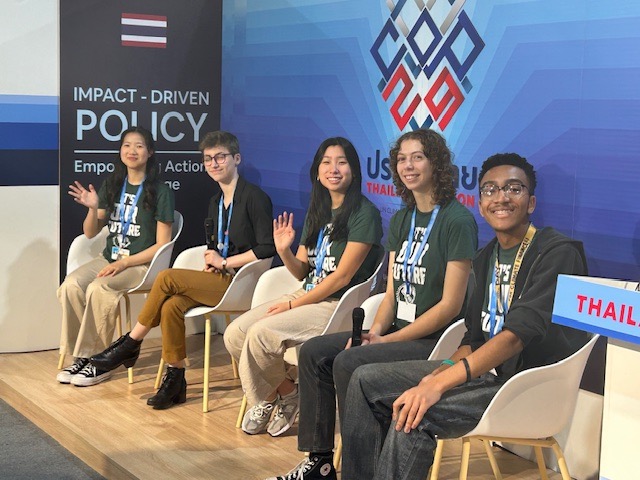
By Gary Cuneen, Seven Generations Ahead
November 13, 2024
Methane
The US-China Summit on Methane and Non-Co2 GHGs (Nitrous Oxide, HFCs, Ozone) began with high-level host presentations outlining the multi-country Global Methane Pledge and plan to reduce methane by 30% by 2030 from 2020 levels (which would be equivalent to making all cars, trucks and planes net zero emissions), and the reality that while the pledge has generated actions across the globe the actual methane volume globally has increased. Methane and non CO2 GHGs represent 50% of all global emissions. The joint summit demonstrates a healthy collaboration between US and China with many nations involved. Methane reduction is considered to be the fastest and best route to reducing GHGs nad having any chance of staying within the 1.5 degree Celsius limit and recommendation established by consensus from scientists across the globe through the IPCC. It is considered to be the best and fastest route to significant GHG reductions due to the relatively easy lift (compared to CO2) regarding the cost and simplicity of technologies involved.
One leader stated that “CO2 is the marathon and Methane is the sprint” in GHG reductions. The three main contributors of Methane/non-Co2 GHGs include: a) fossil fuels (oil and gas leaks); b) agriculture (livestock and rice); and c) waste (placing organic material in landfills). Methane is 80% more potent as a GHG than CO2 and receives 2% of all funding. The President of the World Bank alluded to strategies including the simple and relatively inexpensive retrofits of oil and gas facilities to stop methane leakage and gas flaring; incentivizing farmers to use better livestock breeds and feed to reduce methane; low volume rice patty irrigation (as opposed to flooding fields which increases methane significantly); using seeds requiring less water; and using anaerobic digestion and composting rather than depositing organic waste in landfills. The US is spending $115 million to reduce methane from livestock.
IPCC (Intergovernmental Panel on Climate Change)
At the US Center, the IPCC presented on its next iteration of work, which includes creating the scope for its 7th major report (due in 2027); diversifying its scientist review base in terms of gender, developed/developing nations; and regions; and sticking to its integrity of presenting the science and not action recommendations. I learned today that the IPCC does not do any of its own research, but rather commissions extensive teams to review the research and findings of scientists producing studies within its scope.
It’s Our Future (IOF) Youth
Poppy, Carissa, Kola, Elora and Chloe were invited by the country of Thailand to be on a panel focused on youth engagement at COP, and in a few words they “knocked it out of the park”. They spoke of SGA/IOF efforts to drive sustainability policy development and implementation in IL K-12 schools; successfully advocate for statewide climate education policy; and participate on the global stage at COP to make youth voices heard. They told personal stories of their entry into climate activism, shared their thoughts on how youth could be more integrated into decision-making at COP and shared their perspective that it “is our future” and that youth need more than token roles on the global stage.
